 Justin Fox Burks
Justin Fox Burks
Dr. Marjorie Hass
Rhodes College announced today that Dr. Marjorie Hass will depart her role as college president this summer to become president of the Council of Independent Colleges (CIC), a Washington-based association of nonprofit independent colleges and universities. Yesterday afternoon, Memphis magazine editor and CMI CEO Anna Traverse Fogle had the opportunity to talk with Hass about her decision to accept the CIC’s offer and to leave Rhodes. Her story and interview follow:
Hass, a philosopher by training and temperament, has led Rhodes since 2017. Prior to her appointment at Rhodes, she was president of Austin College, in Sherman, Texas, and before that, she spent more than 16 years as a member of the faculty and administration at Muhlenberg College in Allentown, Pennsylvania. During her Rhodes tenure — whose four-year length neatly matches that of the college’s standard course from matriculation to graduation — she has overseen an era of bold change. Hass has led the 173-year-old institution through a strategic-planning process, which is ongoing. Among her major priorities during her years at the college has been advancing diversity, equity, and inclusion throughout the Rhodes community. The college established the Lynne and Henry Turley Memphis Center under Hass’ leadership, and through it has expanded service opportunities for students. According to the college’s data, applications have increased by more than 20 percent over the past four years.
Her time as president has not been without challenges. Over the course of the past year, Hass has guided Rhodes through the COVID-19 pandemic, including an early move to virtual learning last March. This January, campus reopened to residential students, with aggressive testing and contact-tracing protocols in place. Only a few weeks after students moved back to campus, the Midtown college scrambled to relocate them to suburban hotels when dormitories became uninhabitable following February’s winter weather and associated water issues. The college has faced controversy of several sorts over the past few years, including a crisis surrounding its responses to student sexual-assault allegations in 2019.
Throughout it all — shining forward progress and darker days alike — Hass has maintained an attitude of openness, even vulnerability. She arrived in Memphis in the midst of chemotherapy treatments, and chose to share the fact of her cancer experience with the college community — maybe not an easy decision, but maybe also the only truly viable one.
In October 2020, Hass appeared on the cover of Memphis magazine as part of a story I wrote about her leadership philosophy, especially in difficult times. Regular readers may note that in December 2020, shortly after I wrote a cover story for this magazine about former National Civil Rights Museum president Terri Lee Freeman, who was our 2020 Memphian of the Year, Freeman announced she would depart the museum and Memphis for a museum presidency in Baltimore. After we wrapped up our conversation yesterday, Hass joked, “Organizations may not let you profile their female CEOs anymore!”
She went on to observe, though, “When Memphis leaders leave Memphis, we carry the good news about Memphis with us.”
What follows is an edited version of my candid conversation with Hass.
Memphis Magazine: Thank you for reaching out. Obviously, massively different circumstances from our last Zoom interview [for the cover story of the October issue of Memphis magazine]. Tell me about the new opportunity. I’ve read the release, but if you could share a little in your words about where you’ll be going and what you’ll be doing.
Dr. Marjorie Hass: This is a moment to engage more fully in the national dialogue about higher education, particularly independent higher education. I have devoted my career to that on three different campuses. It is, to my mind, such an important aspect of the American higher education system. And it is facing many challenges, as you know. Rhodes is very fortunate to have navigated some of these more difficult waters so well in the last few years.
We need bold leadership that’s grounded in what’s best for our students, grounded in what we know — the kind of transformational experience that happens on our campuses — and then translating that into policy, into leadership development, into funding opportunities for institutions. It’s a very unique opportunity, and one that I didn’t expect. I wasn’t looking for this, didn’t expect it, but it became something that I feel called to do — even as hard as it is to imagine leaving Rhodes and Memphis.
I’ve served on the board of CIC, and have been very involved with another organization that’s more explicitly involved in federal policy, NAICU [National Association of Independent Colleges and Universities]. The mentoring work that I’ve done nationally also feeds into this. There was a sense that the skills and the passions that this job calls for are things that I’ve been cultivating for many years.
In the interview we did in the fall, we talked about the process that you go through in arriving at a decision — not just the decision itself, but the process that leads you to it. Your approach is so deliberate. What was this decision-making process like?
I knew in coming to Rhodes that I would not be leaving Rhodes to go to another college. There’s no college I would want to be president of more than I would want to be president of Rhodes College. Headhunters call, but none of that was interesting, or tempting, or even felt like an opportunity. I’m very committed to the work we’re doing at Rhodes.
When I was approached about this, it took some time for me even to get my thoughts and head around what it would mean to do this work. Would I have something unique that I could bring to it? Where did I feel that Rhodes was in its development? All of those factors weighed in. I spent a lot of time talking to my husband and God, not necessarily in that order. [Her husband, the other Dr. Hass, is Lawrence Hass, a former professor of humanities, philosophy, and theater arts who is a sleight-of-hand magician.]
But I didn’t have a lot of time for decision-making. This opportunity arose unexpectedly and within a very short time frame. I do feel that the work we’ve done at Rhodes has made an impact, and thinking about how to magnify that impact — how to best serve students across the country, best serve the mission of higher education.
One other factor is this moment: the change in administration, and the renewed focus on access to higher education, coupled with all the various ways that colleges have had to navigate crises over the past few years, make this a unique moment for impact and action.
I also reflect back on the couple of conversations that you and I have had about the opportunities that are presented in crisis. Collectively, we have been in an ongoing crisis for certainly the last year, and in some ways a lot longer than that. I could see that that would be also something that would impel you to make this decision.
I feel so proud of Rhodes. We have navigated this in ways that have strengthened the college. Our goal, going into this, was to make decisions about how to navigate COVID in ways that left the college stronger and better positioned for the future. I can point to so many ways that we have done that. Our strategic plan has been so widely embraced by our board of trustees, by our faculty and students, by our alumni. We’ve been able to make progress on that even in this difficult year. We will continue to do so. I’ll be here till August, so I still have plenty of time to continue working on those projects with others. And I think it sets the next president up with a real opportunity for success.
You’ve been at Rhodes four years now, a relatively short tenure in terms of the sheer numbers. But your impact has been quite a bit larger than one might expect from its length. Could you say a bit about what you’d consider to be key areas that you’ve worked on within those four years?
Many others can weigh in on what this has meant for Rhodes. For me, some of the things that have felt most impactful personally are the core relationship pieces. I am very proud of the people we’ve brought to Rhodes, of people we’ve retained and hired during my time at Rhodes. We’ve filled many key positions, including some brand-new positions that are explicitly focused on diversity, equity, and inclusion. We have our first chief diversity office [Dr. Sherry Turner]; she’s also vice president for strategic initiatives. That’s not just a new person, but a new position. We have some new deans and a newly restructured provost’s office. Those are all opportunities where we’ve brought people who will be shaping Rhodes for many, many years to come. We’ve made changes in the communication office; we’ve really prioritized both strategic communication and more informal ways of engaging with faculty and students on campus, as well as our alumni.
All of those pieces have impacted the culture — the way it feels to be at Rhodes, and how people feel they belong there. So that feels to me like the most gratifying part of the work we’ve done together. We’ve charted a course for the future that is focused strategically on positioning Rhodes to be the institution of choice, or an institution of choice, for the diverse, talented students of tomorrow. We’ve honed what we call the Rhodes Edge. All of those pieces certainly will be here for the long haul.
The work with the [Lynne and Henry] Turley Memphis Center is gratifying. The work we’ve done on teacher education, to help put teachers in Memphis’ classrooms. And the deepening of bonds between Rhodes and the community of Memphis. All of those things feel very personally meaningful for me.
And also very ongoing. As you say, these things are in motion and can continue even without you on campus.
It’s very easy to look at the things that have gone well. The things that have been most meaningful to me have been the ways we have worked through, and I have led our campus through, some very difficult moments. Obviously, COVID was unprecedented, but also other reckonings with aspects of Rhodes’ history, and Rhodes’ present, called for holding our campus as we navigated difficult dialogues, difficult conversations. That also feels very personally gratifying and meaningful, even though those aren’t necessarily the things you point to as the most exciting or newsworthy moments in my tenure here.
We’ve talked before about leaning into crisis, not walking away from it — letting crisis change you.
You asked me how Rhodes might have changed as a result of my being here. But there’s also how I’ve changed because of my participation in the Rhodes community and in the Memphis community. There’s so much that I take away from this experience. I’m not the same woman who came here, either. I have allowed myself to be changed in important ways through the experience of leading Rhodes and living in Memphis.
We’ve been dealing with so much, and so much all at once — I wonder what the experience has been like for you and for the college, to bring students back after everyone has been remote for quite a while [Rhodes ended its spring 2020 semester virtually, and remained virtual during the fall 2020 semester], and then a month or so later, the dorms become uninhabitable because of water problems caused by February’s winter storms.
Historically, let’s hope I will be the only president ever to have to evacuate the campus twice within one year — we don’t want anyone to break that record!
Going through hardship is what bonds you and what shapes you as an institution. We faced these things at Rhodes with our values front and center. As you and I have talked about, the very first thing we did is look at how we make decisions. It’s easy, in times of peace and plenty and calm, to say in words what you value. But it’s when the chips are down, and you’re making challenging decisions, that those values become visible. I think that visibility will serve Rhodes. Again, we certainly want peace and plenty and calm to be the watchwords of Rhodes’ future. But it also will mean that in very living memory, we know that we can navigate through rough waters — and come out better and stronger.
I think with institutions, as with people: you often learn the true colors not in the easy, abundant times, but in the more difficult, stressful times.
My time at Rhodes has been marked by a lot of personal vulnerability. You and I have talked over my years here, too, about how I arrived in the middle of chemotherapy. I was very open with our campus about what that meant for me physically and personally. Rhodes was also reckoning with a number of issues when I arrived. We were acknowledging what it meant for us to be celebrating 100 years of co-education, but only 50 years of integration. We had a longstanding set of questions around our primary campus building, and its namesake. [The college’s oldest building, now known as Southwestern Hall, was, until 2019, known as Palmer Hall, after Rev. Benjamin Palmer, who advanced a purported Biblical justification for slavery.] We had a number of issues that really had to be taken on directly. I would like to think that part of why I was able to help the college work through some of these more longstanding issues was because I was so fully present in those conversations. I didn’t have a lot of personal shields between me and the decisions that the college had to face.
That rings really true for me. Sometimes it’s simpler to be fully present with others’ difficulties in moments when we ourselves don’t have a whole lot of skin on. I’ve had some moments like that. It’s difficult, and it’s exhausting, but often that’s when the most transformative work can happen.
And it invites others to come in, set their armor down, at least for the purposes of the conversation, and you can speak freely and truly. Obviously, as a president you have to make controversial decisions. Certainly there are people who are critical of things I’ve done, or didn’t do. But I hope that people have always felt that I have dealt with them from the core of my being. That I have acted with integrity and with as much transparency as circumstances would allow.
I don’t know exactly how long you’ve known you will be departing Rhodes. What has it been like for you: knowing this news while others don’t, and continuing to show up and lead every day?
First of all, I’m not a good secret keeper; I don’t like to ask others to keep secrets. Fortunately, this has not been a long, drawn-out process. But the bigger question is: how do you lead when you know you’re leaving, right? We have between now and July/August — how will you lead?
The secret, though, is that as a leader you always are leading for what will be beyond you. From day one. You have to be thinking not just: what is best for today, but: how is this shaping the future of the institution? And you’re always trying to make the institution bigger and better than you — more than you. Rhodes belongs to everyone and no one. As an institution, it must and will extend beyond any individual’s leadership. Everything I’ve tried to do at Rhodes, from the day I arrived, has really been with that in mind: what is it that sets Rhodes on a trajectory to longer-term success? And what can I do in my time here to serve our students — not just today’s students, but tomorrow’s, and the students after that.
You make the changes that you can make with the time that you’re allotted. I think about U.S. presidents who have to, like, start answering questions about their presidential libraries before they’ve even gotten through the midterms.
Right, from day one: what do you want your legacy to be? You can’t think like that, but you also have to remember that the institution is more than you. We’ve seen what happens when leaders forget that. When a leader imagines that they are more important, that they transcend the institution rather than the other way around, you really don’t get the kind of good decision-making and the kind of ethical leadership that are required.
And we’re all of us, in roles like this, short-termers to one extent or another.
The average college presidency now is something like five years. I imagined staying at Rhodes longer.
The way that you’re approaching this move and framing it, you’re not moving away from Rhodes, so much as moving toward an opportunity that will in many ways strengthen the future of Rhodes and other colleges like it. It’s not a moving-away, necessarily, it’s a moving-toward.
It’s an expansion, not a separation. That’s really something that makes it plausible and possible. First of all, Rhodes has a lot of relationships with CIC, as do many other independent colleges [Christian Brothers University is another Memphis-based member, for instance.] Rhodes sends a lot of leaders to CIC for leadership development. And the kind of decisions that are being made about policy impact Rhodes and its students every day. We’re about to enter into a major conversation nationally about the Pell Grant, which is essential for so many Rhodes students. We’re about to focus on diversifying and broadening the leadership pipeline so that there are great presidents and provosts and deans for decades to come, reflecting the makeup of our student bodies. We are looking to help colleges identify ways to strengthen their financial underpinnings, so that, again, they can make access available to students.
You’ll be moving to D.C. — is that exciting?
The most exciting thing about it is that I can hop on a train in D.C. and be in Philadelphia really quickly, where my son lives. Bringing our family back together — especially after this difficult year — feels really pleasing. My husband and I both have colleagues and friends on the East Coast, in Washington, D.C., and New York, so there’s certainly a piece of a homecoming there, given that we spent 17 years near Philadelphia. All of that feels good. And then I think about the energy and excitement of being in D.C. and being in the midst of those very important conversations that may seem abstract, but on a daily basis shape the conditions of our campuses.
But we’re leaving parts of ourselves here in Memphis.
The college, through your tenure, has formed a more productive relationship with the city than it’s had for most of my memory.
Right, but it also means that we’re not just saying goodbye to a campus; we’re saying goodbye to a city that we’ve come to love. We will be leaving parts of our heart here, and we will be back often. As Memphians and Memphis leaders find ways to interact with higher education on a national basis, or have business in D.C., I will look forward to continuing these relationships and connections.
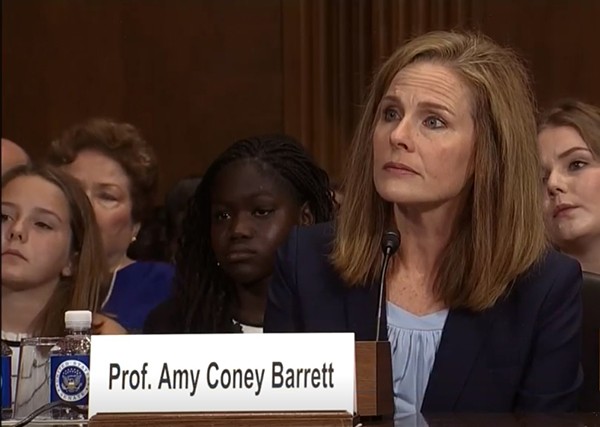 Wikipedia: CSPAN
Wikipedia: CSPAN 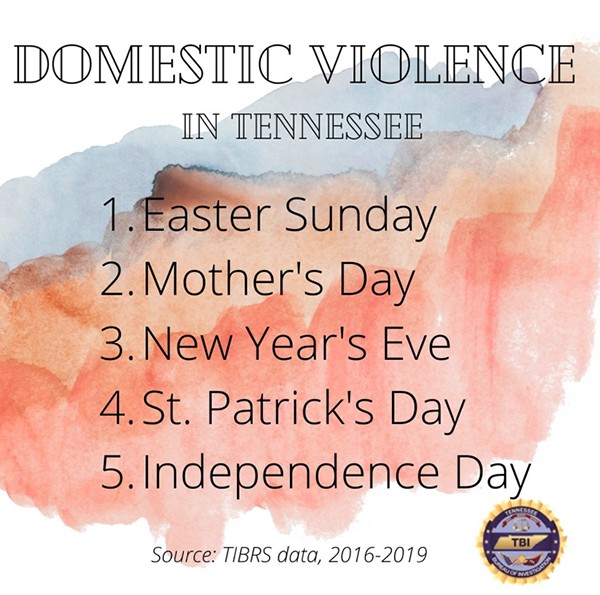

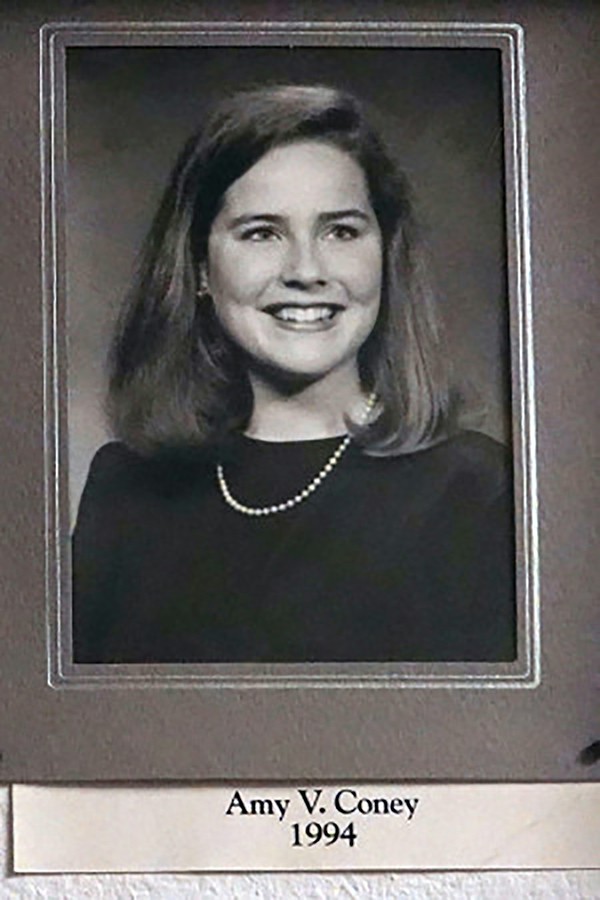
 Courtesy of Clough-Hanson Gallery at Rhodes College
Courtesy of Clough-Hanson Gallery at Rhodes College 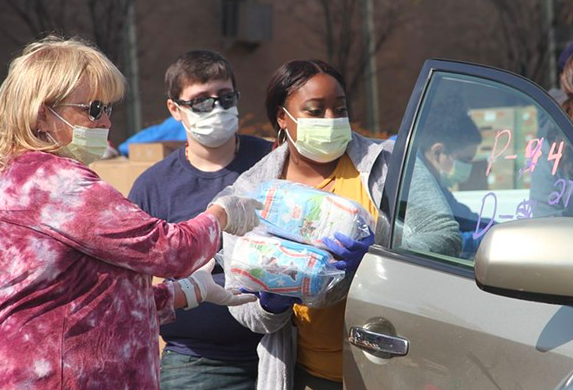
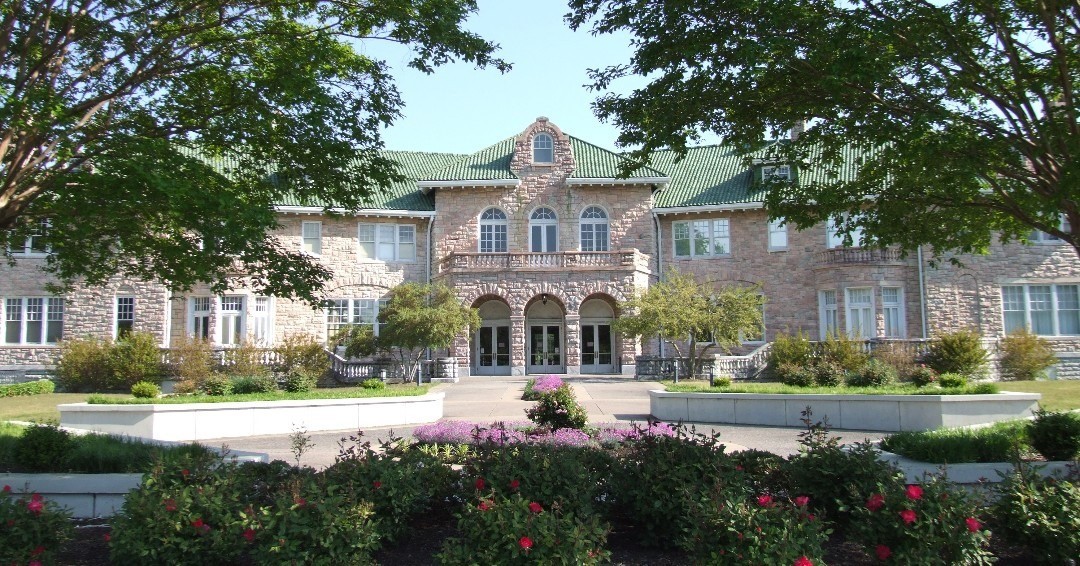 Pink Palace Museum
Pink Palace Museum 
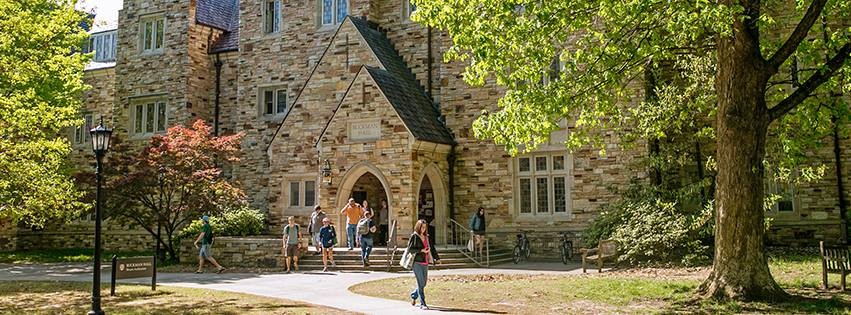 Facebook/Rhodes College
Facebook/Rhodes College 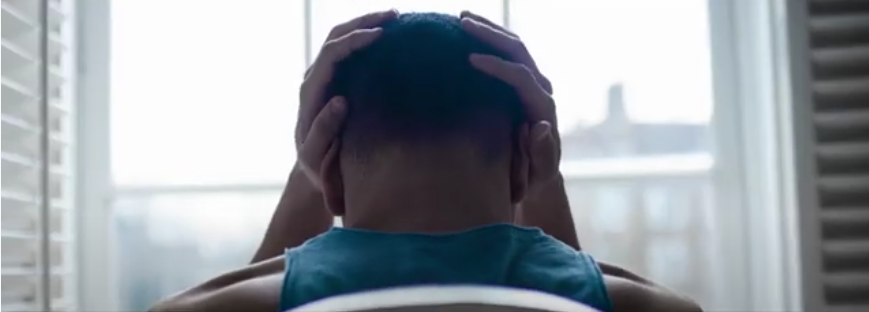
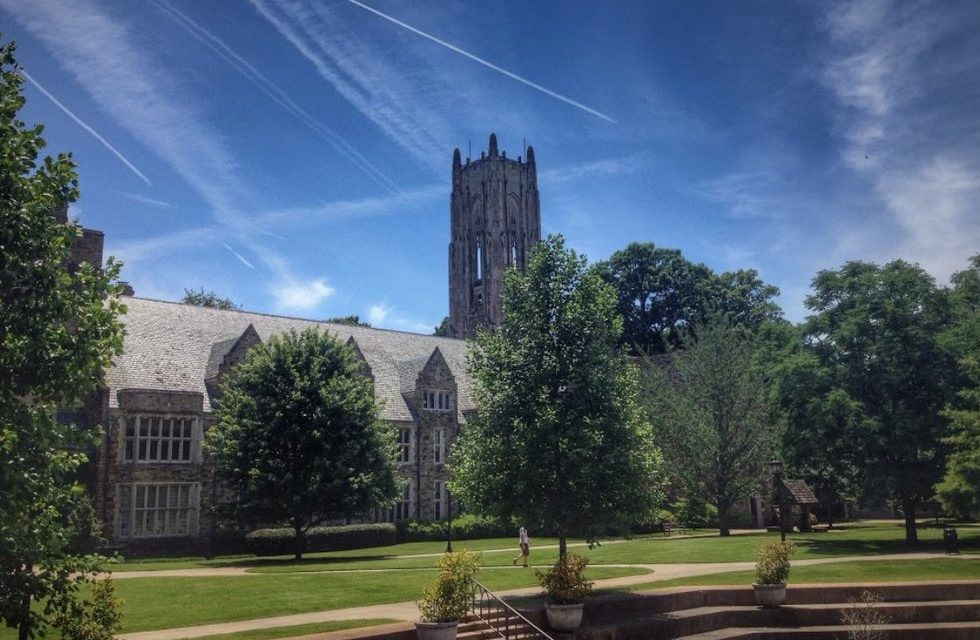 Photo courtesy Rhodes College
Photo courtesy Rhodes College 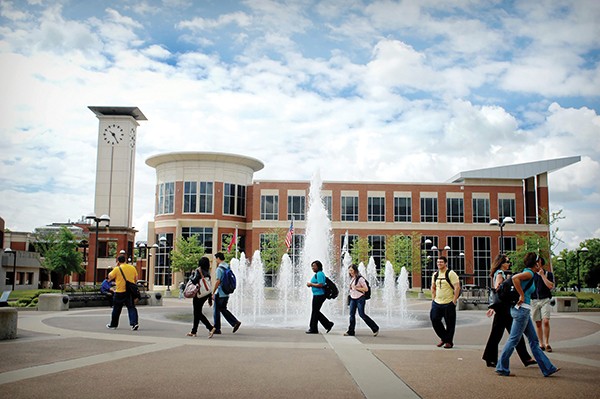 University of Memphis/Facebook
University of Memphis/Facebook 
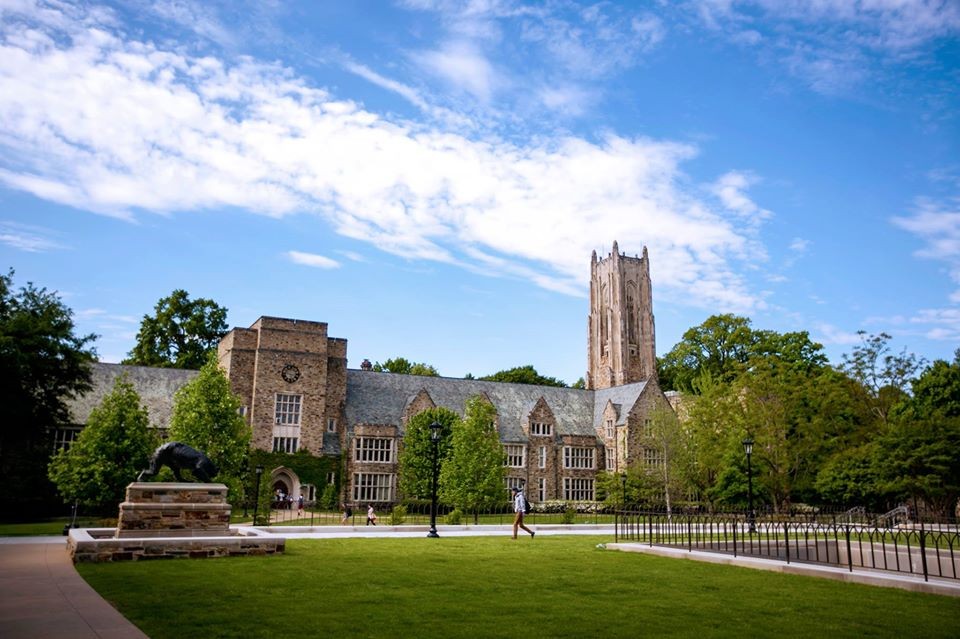 Facebook/Rhodes
Facebook/Rhodes 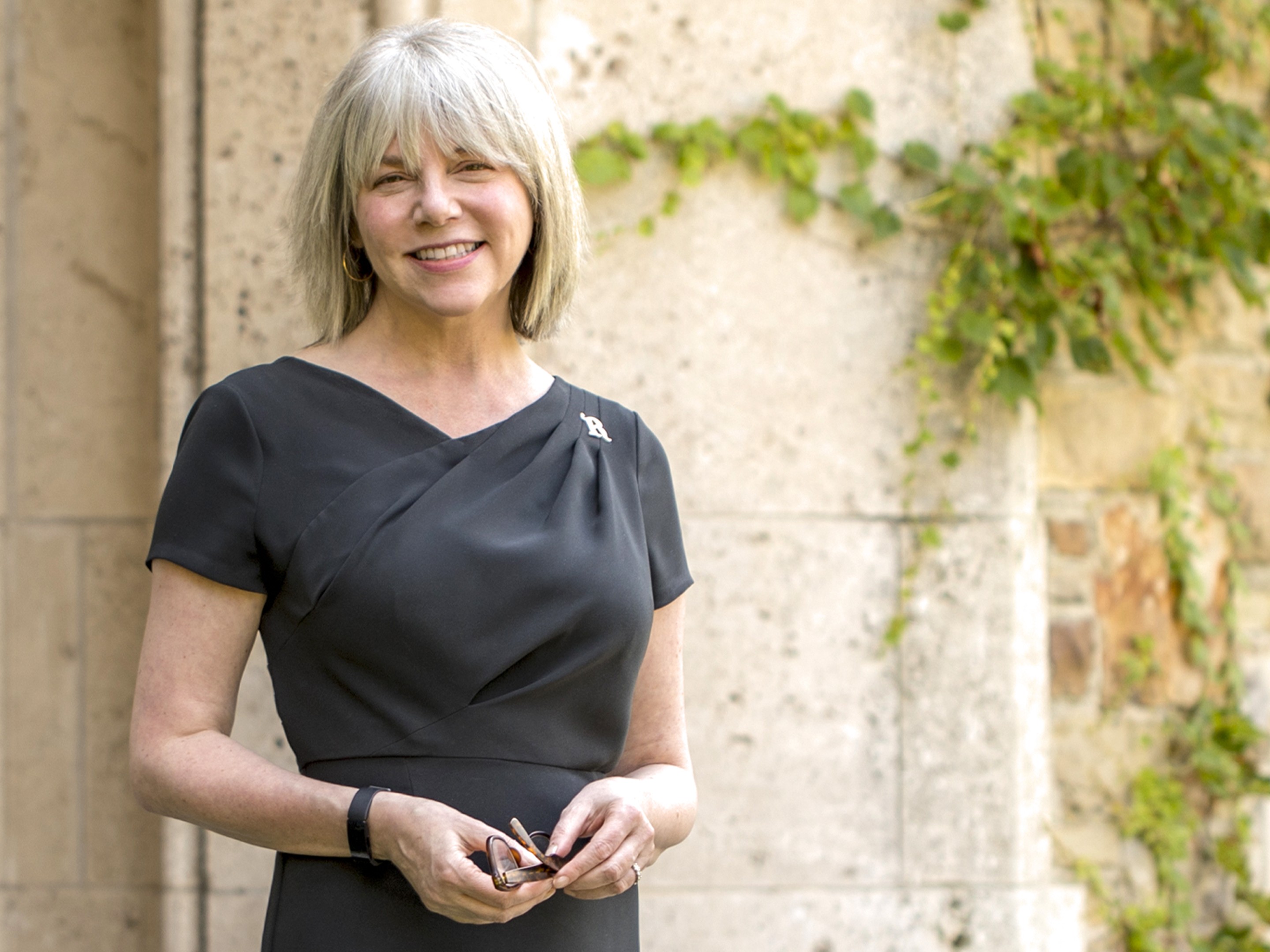 Rhodes College
Rhodes College